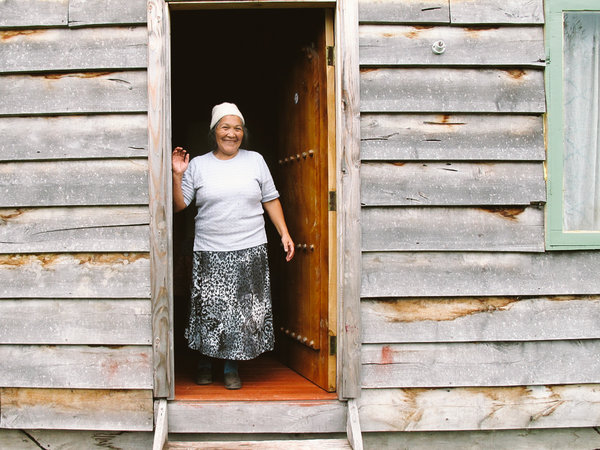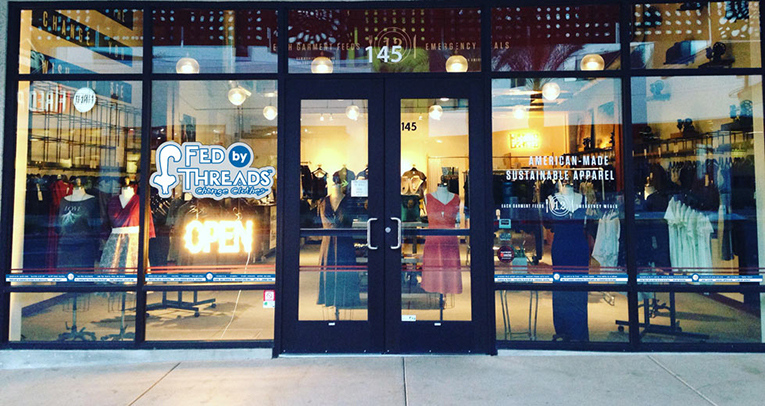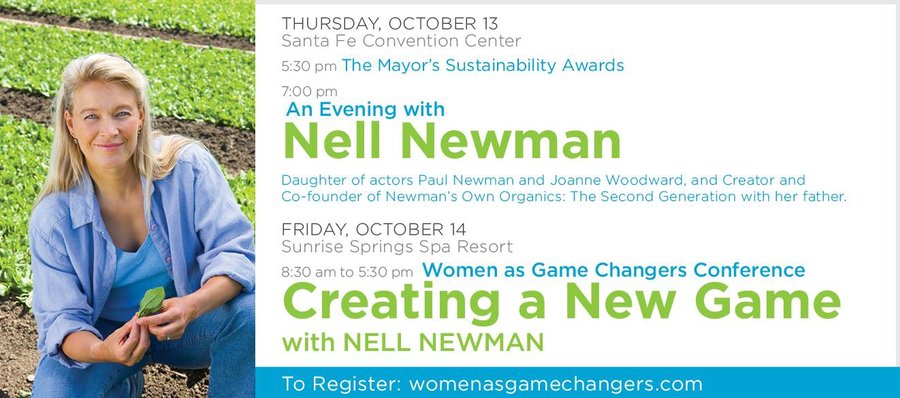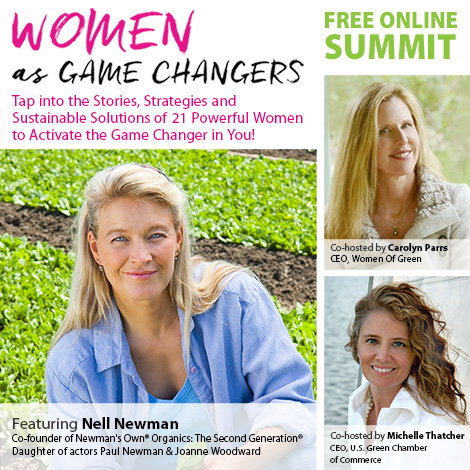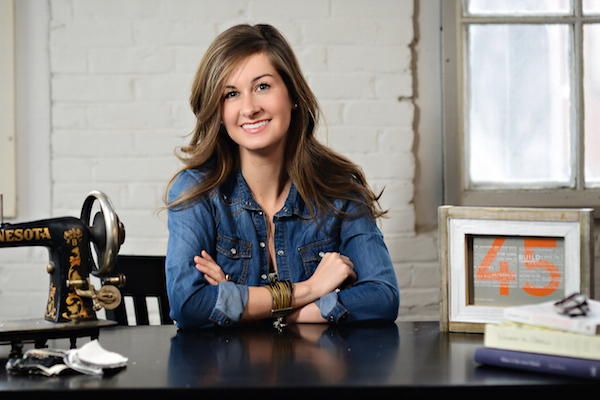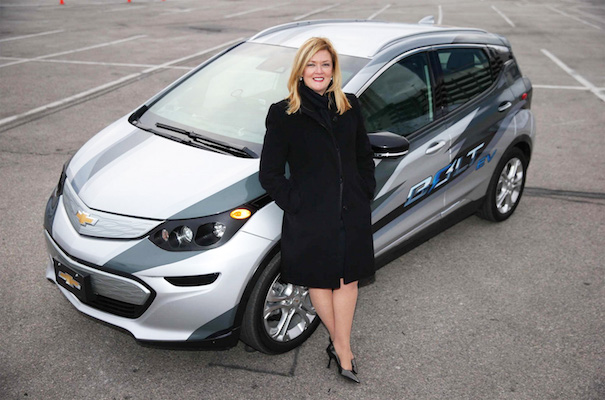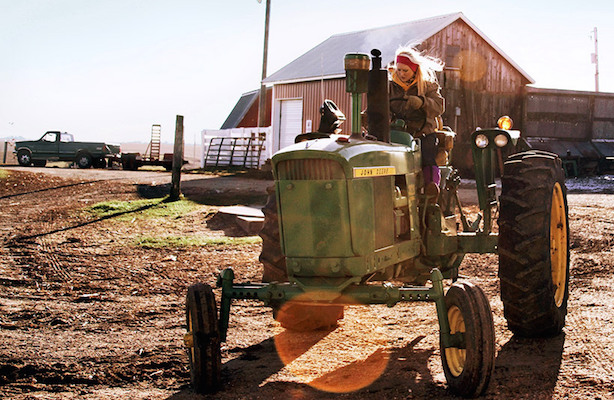If you didn’t know, the majority of the apparel we wear is made by women in developing countries, in unpleasant and cruel environments. This is a reality. The good news is we can do something about it! With this perilous situation, there are vast amounts of potential for the fashion industry to empower and uplift women. But, it’s going to take a lot of work. What you can do about it? Educate yourself, shop ethically and empower designers.
Continue reading... →Three small green businesses offering ethical apparel in New York,Arizona and Wisconsin, were announced as the winners of Green America’s “People & Planet Award.” The winners of the $5,000 prizes are: Themis and Thread of Hector, NY; Fed By Threads of Tucson, AZ; and Fair Indigo of Madison, WI. The winners were selected by the public during a month-long online voting period. The Award recognizes innovative U.S. small businesses that integrate environmental and social considerations into their strategies and operations.
Continue reading... →Take your game changing idea, project or business to the next level by identifying your strengths and challenges, and uncovering specific strategies and solutions that you can take home and immediately incorporate into your business or organization. Devi Record will help you do this through the Generative Business Process at the upcoming “Women As Game Changers Conference: Creating a New Game” on October 13-14.
Continue reading... →Kim Graham-Nye, named one of Fortunes 10 Most Powerful Women Entrepreneurs in 2011, is the co-founder of gDiapers with her husband Jason. In this Women as Game Changers interview, Kim Graham-Nye shares how she helped found gDiapers, a disposable diaper company with cradle-to-cradle diaper “inserts” that after use can be planted.
Continue reading... →There are 3 days left till the launch of “Women As Game Changers” FREE online Global Summit. It starts this Monday, April 18th and goes through May 13th. Nell Newman, daughter of Paul Newman and co-founder of Newman’s Own Organics, is one of our featured speakers along with Priscilla Woolworth; Natalie Isaacs, the Founder of 1 Million Women; Kim Graham-Nye, Co-founder of gdiapers; Gail Larsen, Transformational Speaking; Joanna Hartcourt-Smith, author, poet & former wife of Tim Leary; Helen Chantler, Co-founder of the first fair-trade jewelery in the US— and 21 more powerful women dedicated to helping you: Tap into the collective power of women to create a vibrant network and support system to realize your Big Vision. Propel your big dream or passion into a prosperous, thriving business, organization or project that has a permanent, positive impact in your world. Learn proven, game-changing strategies and solutions that you can infuse into your vision or work immediately. Overcome the challenges you may be feel right now through the brilliant sharing of wisdom and works from women who have gone beyond their own limitations and changed the world dramatically. Get so inspired that you are unstoppable. When you register, you will get in your inbox one […]
Continue reading... →These women of the fashion world share their predictions of where the Eco-Fashion industry is headed in 2016. AMY HALL (DIRECTOR OF SOCIAL CONSCIOUSNESS, EILEEN FISHER) As an industry “insider,” I see three game-changing fashion trends taking deeper root in 2016. Fiber recycling: This is the year when we will find out which recycled-fiber developer will be the first to offer viable fabric suitable for mass-market apparel. So many are reaching for the golden ring. And it couldn’t come soon enough, what with deforestation and water scarcity threatening the future of virgin fibers as we know them. Living wage: After more than a century of stagnant wages for our garment-industry workers, there are murmurings of change on the horizon, such as the London living wage movement, the U.S. minimum wage campaigns, non-governmental organization activism, and brand acknowledgement of the severe impact that purchasing practices have on supply-chain compliance. Garment workers shouldn’t pop the champagne yet, but higher wages are in the air. Fast fashion: Nothing we do will really matter until we can loosen the consumers’ grip on “fast fashion” and get her to think of apparel as an investment. We repair our cars, our iPhones, and our furniture. Why […]
Continue reading... →GM turned heads at the 2016 CES (Consumer Electronics Show) with the launch of the groundbreaking 2017 Bolt electric vehicle, the first electric car with a long electric range (200 miles per charge, comparable to a Tesla Model S) but an affordable sticker price ($30,000). Inhabitat chatted with Pam Fletcher, the Executive Chief Engineer of Electric Vehicles over at GM to learn more about this accomplishment and what it took for one of the world’s largest car manufacturers to unveil such an innovative car. Read on for the interview. INHABITAT: Congratulations on the launch of the Chevy Bolt! How long did it take to get to that point? FLETCHER: The 2017 Chevrolet Bolt EV made its public debut yesterday after years of hard work. But one question that didn’t get a lot of attention in all the fanfare was: How did we get here? Many think our size is a disadvantage – that GM’s size is too big and not agile enough to develop a product like the Bolt EV. But without GM’s scale we would never have been able to build it and here’s why. It all starts with the people, and people is something GM has in abundance. […]
Continue reading... →One of the biggest challenges for small, local businesses is getting noticed. The truth is that local businesses have unique advantages over the big boxers, and if they are strategic about it, they can carve out a sweet piece of the market pie. The Good News In recent years, there has been a huge resurgence in customers wanting to shop local and support the community. Emarketer recently reported the following: U.S. consumers are choosing small businesses because of the personalized experiences they provide compared with larger businesses. According to April 2014 data from AYTM Market Research, personal service was the Number 2 reason U.S. internet users preferred small businesses vs. large companies, cited by 52.7%. This trailed supporting the local economy (56.2%). What’s more, prices did not play a huge role in choosing small businesses. In fact, 61.2% of respondents said they would pay higher prices to support small businesses. The truth is people are rooting for you to succeed! Here are 3 ways to help make that happen. Don’t Put the Cart Before the Horse One of the biggest and most expensive mistakes I see with small, local businesses is putting the cart (creating a website or ad campaign) […]
Continue reading... →With the end of the year just around the corner, we wanted to reflect on all that we have to be grateful for in 2015. There’s a lot to celebrate! From promoting conservation to empowering beginning farmers, here is the National Sustainable Agriculture Coalition’s list of the Top 15 Highlights of 2015: Conservation and Environment 1. 2015 opened with the first ever Conservation Stewardship Program (CSP) contract renewals. CSP, a program that NSAC has championed, is the only farm bill conservation program to support performance-based advanced conservation systems for working farms. 70 percent of expiring acres were renewed by producers ensuring that more than 17 million acres will continue to be supported through new and ongoing conservation activities. The year also ended on a high note for CSP: the Natural Resources Conservation Service (NRCS) postponed the CSP overhaul until 2017, buying more time for stakeholder input and outreach around the changes, and just this week Congress approved an omnibus budget bill that eliminated House-proposed cuts to CSP funding in 2016. 2. National Sustainable Agriculture Coalition (NSAC) member organizations and supporters submitted hundreds of comments to USDA recommending ways to improve the interim rules to implement 2014 Farm Bill changes to conservation programs, […]
Continue reading... →